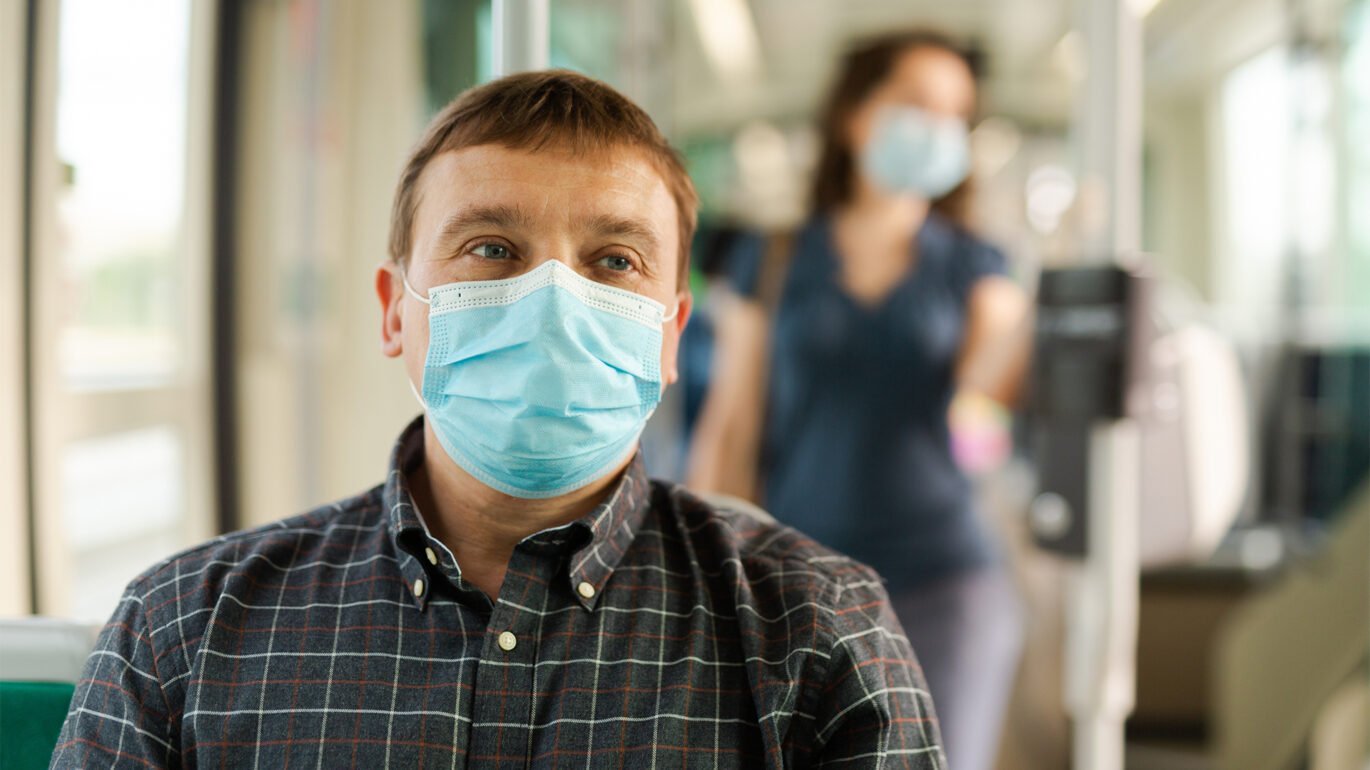Protecting ourselves and our family members from the highly contagious Omicron variant of COVID-19 is everyone’s top priority right now. Workplaces are required by law to have many protective measures in place. But what can we do at home and in the community to stay safe?
We put these questions to Hamish Morgan, WSPS Consulting Services Manager.
What is the single most important thing to do?
“Getting your shots is really important,” says Hamish. “A double vaccine and a booster increase your immunity against Omicron and greatly reduce your risk of becoming severely ill or hospitalized.”
What best practices should we implement at home?
“Limit indoor gatherings,” advises Hamish. “It’s kind of a tough medicine, but it’s important.” He notes that cases skyrocketed in January after holiday gatherings in December. “If you do have visitors in your home, stay up to date on provincial guidelines and maintain physical distancing, respiratory etiquette, hand hygiene practices and rapid testing.”
“Another smart practice is to improve ventilation in your home. Omicron is spread primarily through respiratory droplets in the air. If you can dilute particles, you can help reduce the risk.” Here are some ventilation tips from Ask Ontario’s Science Table:
- If you have ceiling fans, turn them on and make sure they are pulling air upwards
- Change furnace filters (or ask your landlord or building manager if filters have been changed)
- Run your HVAC under the “on” feature instead of “auto”
- Consider purchasing or borrowing a HEPA filter
- Turn on and leave on exhaust fans in bathrooms and stovetop when people visit
- Open windows or screen doors to help fresh air circulate
What kind of masks offer the best protection when we go out in public?
Public Health Ontario recently strengthened its masking and fit recommendations. “For the Omicron variant,” says Hamish, “wearing medical masks is recommended. N95 or KN95 respirators are preferred because they offer several layers of filtration. For an added layer of protection, a medical mask may be supplemented with a three-layered cloth mask.”
Fit is extremely important, says Hamish. “If you don’t have a good fit to your face (around your nose, mouth and chin), the protective value of the mask is markedly reduced.” For medical masks, use the “knot and tuck” technique to improve the fit. Tie knots in the ear loops, then tuck in the sides of the mask so that it lies flat against your face. “Conduct a visual check in the mirror for obvious face seal gaps with the mask.”
“If wearing a respirator, perform a seal checks with each use following the manufacturer’s instructions.”
Can I reuse disposable surgical masks, cloth masks, and N95 or KN95 respirators?
Yes, says Hamish. “Cloth masks can be washed; surgical masks, though typically disposable, may be put into a brown paper bag for a few days to air out. Respirators can also be re-used for several days – follow manufacturer’s guidelines. Replace the mask if it becomes dirty, damaged, stained or damp, or if you have been in contact with an infected person.”
I have facial hair. Can I still get a good fit with a mask or respirator?
“It’s almost impossible to get a good fit if you have facial hair,” says Hamish. “Consider shaving it off.”
We’ve heard that it’s also important to wear eye protection. Is that true?
“It’s common practice for workers who may be in close contact with another person to wear eye protection (goggles, face shields, safety glasses) as well as masks. This practice should also be considered by the general public. Eye protection can limit infectious droplets from being absorbed through the mucus membranes of the eyes.”
How effective are rapid tests?
“A rapid test provides an added layer of protection, but a negative test doesn’t mean that you are free and clear. You still have to use other protective measures.”
A positive test will alert you and your family to follow the isolation protocols outlined by the government. If you are unclear of what to do, contact your local public health unit.
How WSPS can help
For tips on keeping your workplace safe, visit the WSPS COVID-19 Microsite. Here’s a sampling of the many resources:
- COVID-19 Workplace Risk Assessment and Safety Plan (eCourse)
- Return To Work During COVID-19 (20-minute eCourse)
- Workplace Considerations for Working Alone During COVID-19 (tipsheet)
- Considerations for Conducting Workplace Inspections During COVID-19 (tipsheet)
- Supervising employees remotely? Get 7 tips to boost your effectiveness (article)



